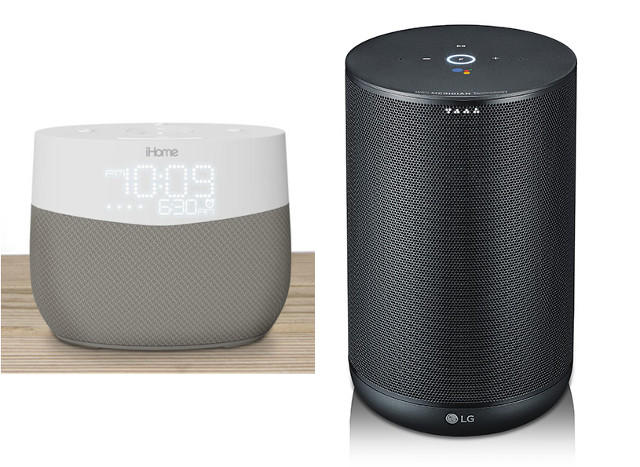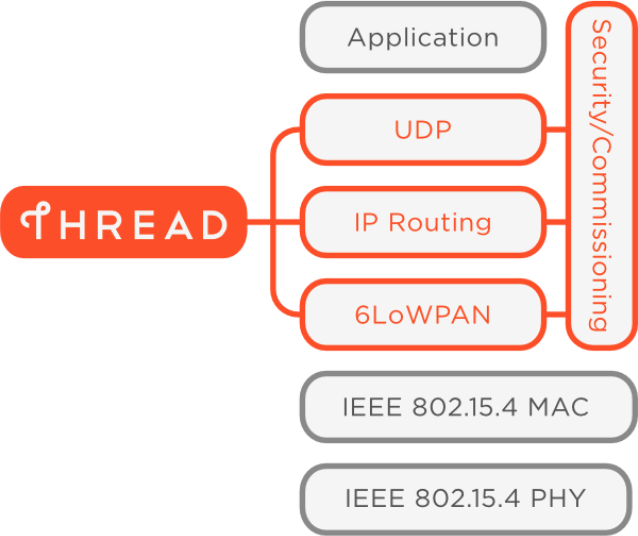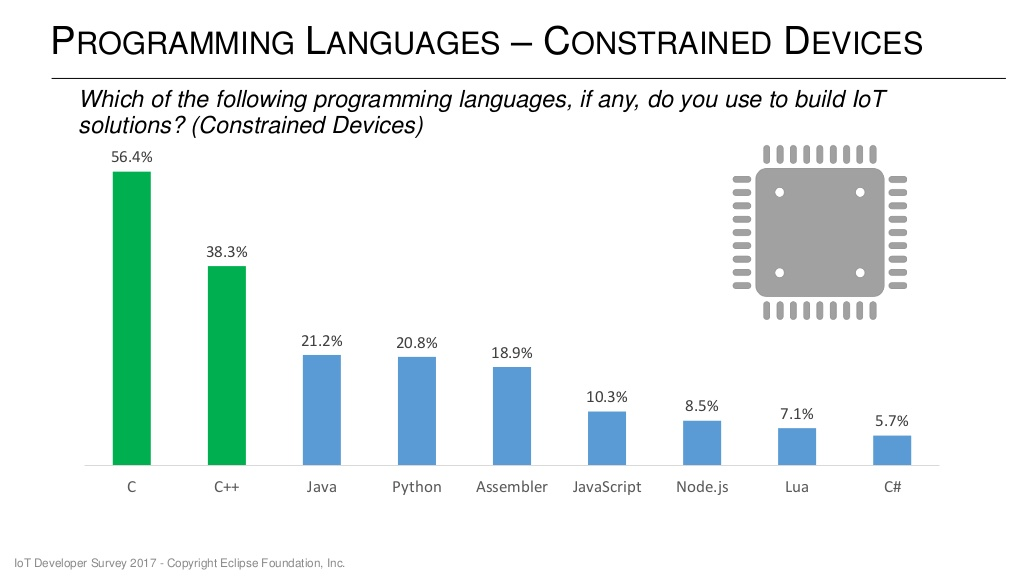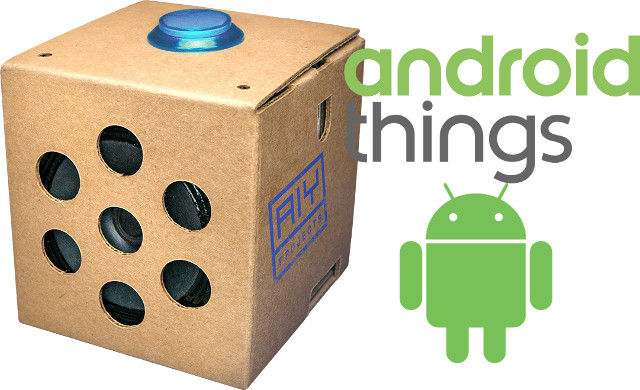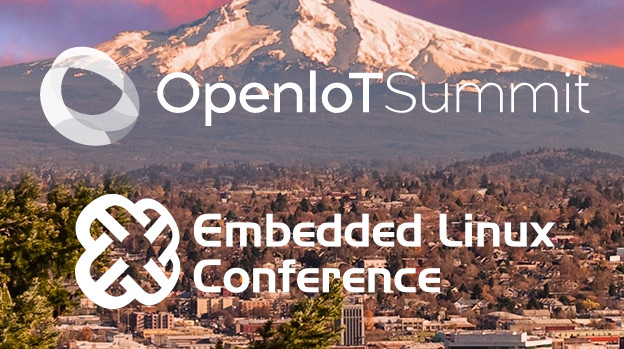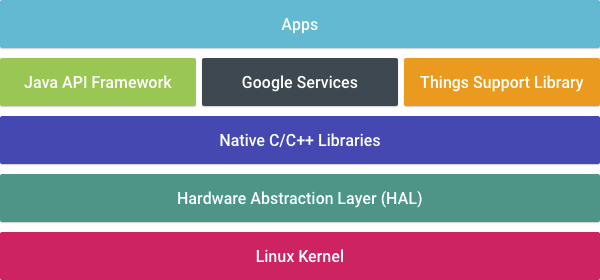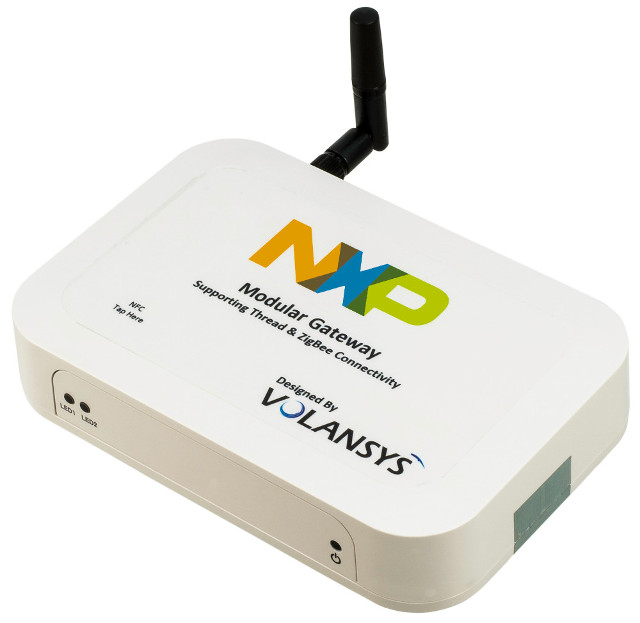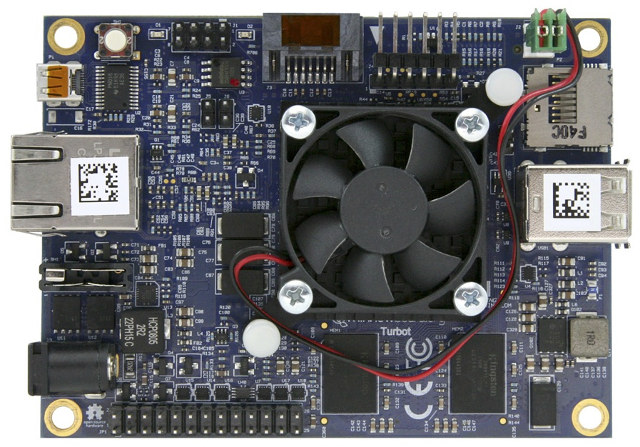Android Things was first introduced as Brillo in October 2015, before being renamed to Android Things the following year when a developer preview was released with support for Raspberry Pi 3, as well as Intel and NXP development boards. But if you can’t remember the last time you’ve purchased a device running Android Things that’s normal, because so far, there was none. Google announced this is going to change as the first set of Android Things products have been announced at CES 2018. The first category of devices to run Android Things will be Google Assistant enabled smart speakers with the launch of products such as iHome iGV1 and LG ThinQ WK7. ODM partners have also created full speaker reference designs based on certified Android Things and Cast System-on-Modules (SoMs) powered by Rockchip RK3229, Mediatek MT8516, or based on Qualcomm SD212 Home Hub Platform. NXP i.MX 8M solutions are also […]
Google Announces LoWPAN/Thread Support in Android Things DP 6.1
Not to be confused with LPWAN (Low Power Wide Area Network), LoWPAN (Low Power Wireless Personal Area Network) solutions are designed for peer-to-peer usage on constrained battery-powered devices using standard procotols like HTTP and CoAP. Based on 6LoWPAN and 802.15.4, Thread is one of those LoWPAN standards, and Google has just added API support for configuring and managing LoWPAN as a part of Android Things Developer Preview 6.1, including networking support for Thread. Google explains “these types of low-power connectivity solutions enable Android Things devices to perform edge computing tasks, aggregating data locally from nearby devices to make critical decisions without a constant connection to cloud services”. You can read LoWPAN API guide to learn more details on building your own apps to create and join local mesh networks, but to quickly get started OpenThread running on Nordic Semi RF52840-PDK is recommended. You’ll first need to install the firmware and […]
Top Programming Languages & Operating Systems for the Internet of Things
The Eclipse foundation has recently done its IoT Developer Survey answered by 713 developers, where they asked IoT programming languages, cloud platforms, IoT operating systems, messaging protocols (MQTT, HTTP), IoT hardware architectures and more. The results have now been published. So let’s have a look at some of the slides, especially with regards to programming languages and operating systems bearing in mind that IoT is a general terms that may apply to sensors, gateways and the cloud, so the survey correctly separated languages for different segments of the IoT ecosystem. C and C++ are still the preferred languages for constrained devices, and developers are normally using more than one language as the total is well over 100%. IoT gateways are more powerful and resourceful (memory/storage) hardware, so it’s no surprise higher level languages like Java and Python join C and C++, with Java being the most used language with 40.8% […]
Android Things Developer Preview 4 Released with Google Assistant SDK Support
Earlier this month, Google released a preview of the Google Assistant SDK that works on boards running Debian like the Raspberry Pi 3, and even launched AIY Project Voice Kit for the later. You can now play with Google Assistant on Android Things as the company has just released Android Things Developer Preview 4 with support for Google Assistant SDK. The operating systems works on any Android Things certified devices, but the example instructions for Google Assistant API on Android Things also include steps to use Raspberry Pi 3 board together with AIY Projects Voice kit. The developer preview 4 also adds I2S to the peripheral I/O API and is demonstrated in the aforementioned example, and new hardware support with NXP i.MX7D based Pico Board equipped WiFi & Bluetooth, Ethernet, USB ports, an audio jack, and an I/O expansion port. Android Things DP4 also brings the ability for developers to […]
Embedded Linux Conference & OpenIoT Summit 2017 Schedule
The Embedded Linux Conference 2017 and the OpenIoT Summit 2017 will take place earlier than last year, on February 20 – 23, 2017 in Portland, Oregon, USA. This will be the 12th year for ELC, where kernel & system developers, userspace developers, and product vendors meet and collaborate. The schedule has been posted on the Linux Foundation website, and whether you’re going to attend or not, it’s always informative to check out the topics. So as usual, I’ll make a virtual schedule for all 5 days. Monday, February 20 For the first day, the selection is easy, as choices are limited, and the official first day it actually on Tuesday. You can either attend a full-day paid training sessions entitled “Building A Low Powered Smart Appliance Workshop“, and the only session that day: 14:30 – 15:20 – Over-the-air (OTA) Software Updates without Downtime or Service Disruption, by Alfred Bratterud, IncludeOS […]
Android Things OS for the Internet of Things Supports Raspberry Pi 3, Intel Edison, and NXP Pico Boards
Google introduced Project Brillo a little over a year ago, an operating system based on Android, but with a smaller footprint optimized for Internet of Things applications. Brillo has now just become Android Things OS, with Google releasing a developer preview of Android Things working on Raspberry Pi 3, Intel Edison, and NXP Pico boards. The company has also updated the Weave platform to simplify connection of all types of devices to the cloud, and interaction with services like the Google Assistant. The Weave Device SDK currently supports schemas for light bulbs, smart plugs, switches, and thermostats, with more type of device supported in the future, as well as a mobile app API for both Android and iOS. Using an Android based OS instead of a pure Linux OS should make it easier for Android app developers to create smart devices thanks to the use of familiar Android APIs and […]
NXP Modular IoT Gateway Supports Thread, Zigbee, NFC, Bluetooth and WiFi Connectivity
NXP has just announced a modular IoT gateway solution for large node networks (>= 250 nodes) based on Volansys i.MX6UL system-on-module, supporting wireless communications protocols such as Thread, ZigBee, NFC through add-on modules, on top of Wi-Fi and Bluetooth 4.1. NXP Modular IoT Gateway specifications: SoM – Volansys i.MX6UL 200-pin SO-DIMM module with: SoC – NXP i.MX 6UL ARM Cortex A7 processor @ 528 MHz System Memory – 256MB to 1GB DDR3L RAM Storage – 1GB to 4GB NAND flash, optional 4GB to 16GB eMMC flash, EEPROM for device info PMIC, Mbit Ethernet PHY Wireless Connectivity Expansion Modules: PN7120 explorer board for NFC Kinetis KW41 module for Thread support JN5169 module for Zigbee support 2x MikroBUS headers Baseboard connectors / features: Storage – 1x micro SD slot Connectivity – 1x 10/100M Ethernet port, Murata WiFi 802.11 b/g/n & Bluetooth 4.1 + EDR module with external antenna connector USB – 2x […]
MinnowBoard Turbot SBC Gets a Quad Core Atom E3845 Processor, Better Ethernet, and a Fansink
MinnowBoard Turbot open source hardware SBC was released in 2015 with an Intel Atom E3826 dual core Bay Trail-I processor, 2GB RAM, SATA and Gigabit Ethernet support, and a new version – MinnowBoard Turbot Quad – with a more powerful quad core processor, an heatsink and fan, and better Ethernet connectivity will be launched in December. MinnowBoard Turbot Quad “MBT-4210” board specifications: SoC – Intel Atom E3845 quad core Bay Trail-I processor @ 1.92 GHz with Intel HD graphics @ 542 / 792 MHz (10W TDP) System Memory – 2GB DDR3L 1067 MT/s (Soldered) Storage – 1x SATA2 3Gbs, 1x micro SD card slot, , 8 MB SPI Flash for firmware (Tianocore UEFI, Coreboot, SeaBIOS) Video & Audio Output – 1x micro HDMI connector Connectivity – 10/100/1000M Ethernet RJ-45 connector (Intel i211 instead of Realtek NIC on first board) USB – 1x USB 3.0 host, 1x USB 2.0 host Debugging […]


